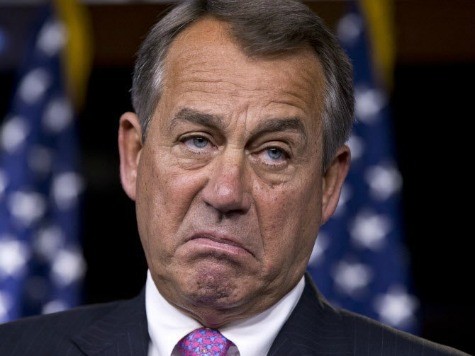A new book that argues politicians in Washington manufacture crises and manipulate vote scheduling and other legislative activity as part of a Mafia-like “protection racket” to extort campaign donations is drawing attention from such divergent corners as The New York Times and Sarah Palin.
But the book, Extortion: How Politicians Extract Your Money, Buy Votes and Line Their Own Pockets, is predictably not drawing rave reviews from House Speaker John Boehner, whose office is lashing out at author Peter Schweizer, a fellow at the conservative Hoover Institution and an editor-at-large at Breitbart.
“He should probably read ‘Congress for Dummies’ before he starts making bogus and salacious claims to sell books,” Boehner spokesman Brendan Buck said in a statement.
Schweizer, in an interview on Wednesday, said he’d not yet heard directly from Boehner’s office. But he expected blowback, given his assertions.
Schweizer advances a novel argument: Rather than special-interest money in Washington being funneled to politicians in order to gain access and favor, politicians run government in ways designed to extract special-interest money from various constituencies. He also says that the notion that Washington dysfunction is a product of partisanship and ideological entrenchment can be looked at in a different light: that gridlock, legislative threats, and fear of uncertainty help prime the donation pump.
“It’s one of the oldest and most effective forms of extortion: the protection racket,” he writes in one chapter. “Pay me money and I will promise not to make your life miserable. Fail to pay and bad things will happen to you.”
Schweizer writes that that has been the “bread and butter” of organized crime for centuries, but that “the Permanent Political Class in Washington plays the protection racket, too. Failure to pay will not get you killed–but it could kill your business.”
To make his case, Schweizer describes various maneuvers in which he argues politicians engage in a form of legal extortion to extract campaign contributions from business or other special interests. His book throws out colorful terms for these maneuvers, such as “toll-booth” requirements, “milker bills,” “double-milker bill,” and “juicer bills.”
Read the rest of the story at National Journal.

COMMENTS
Please let us know if you're having issues with commenting.